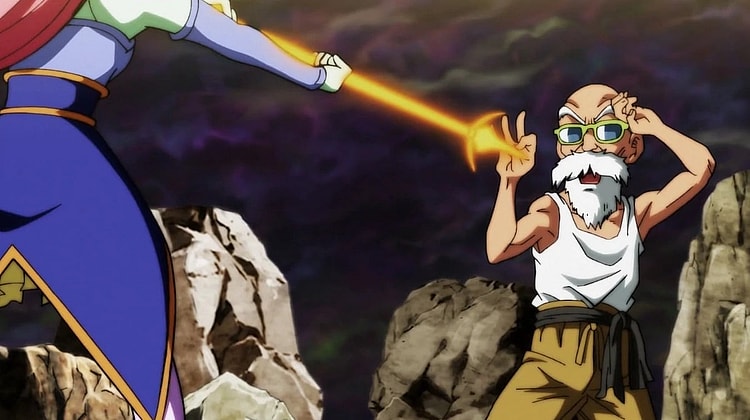Buenos Aires Bans Episode Of Dragon Ball Super After Claiming It Normalizes “Abuse In Childhood And Adolescence”

Master Roshi’s antics have once again drawn the ire of a government body, as Buenos Aires has announced that an episode of Dragon Ball Super, wherein the Turtle Hermit undertakes a particularly ‘risque’ method of training, has banned from broadcast in the autonomous Argentinian city.

As detailed in a press release published to the Government of Buenos Aires’ official webpage on August 30th, the outrage against Dragon Ball’s resident senior citizen began when the province’s Ministry of Women, Gender Policies and Sexual Diversity “presented a note to the Public Defender of the Nation” in which they voiced their concerns surrounding the Dragon Ball Super anime’s 91st episode.
The episode, “Which Universe Will Win Their Place? The Mighty Warriors Gradually Assemble!”, takes place in the lead up to the series’ Tournament of Power arc (or Universal Survival Saga, as it’s titled in the anime) and follows the efforts of the twelve Dragon Ball universes to assemble their respective teams for the upcoming battle for universal survival.

Having already been asked by Goku to fight in the tournament on behalf of Universe 7, the episode sees Master Roshi undertake a particularly humorous and unorthodox method of training: In order to overcome his dirty mind, he asks Puar to transform into a beautiful woman and subject herself to his advances until he can learn to control his more primal urges (a momentous feat which he eventually accomplishes).
Upon reviewing the episode, the Buenos Aires government found that “The episode that was seen on the screens in Argentina reproduced the exercise of sexual violence by an elder towards a minor, in a context of social acceptance, in which the violation of a girl was naturalized.”
“The episode in question depicts a multiplicity of morbid details,” the government wrote in their press release. “The adolescent locked up with the adult “Master Roshi” repeatedly saying no and trying to escape – giving clear signs that there is no consent-; the Master, in his place of power, saying that he cannot stop, that he is stronger than he; while the other characters watch from the outside, not intervening in the situation.”

The government also explained that an internal analysis of the episode ”identified that it contains a scene of abuse and submission by an older adult male towards an adolescent that is extremely inconvenient in relation to the problem of sexual abuse in childhood and adolescence, since it naturalizes the abuse by making it part of the exchange between characters.”
“The scene portrays how the young woman’s refusal is ignored by the teacher, who continues to force the encounter, while the other characters, visibly moved and anguished by the situation, silently observe the violent and abusive actions of the adult male,” the government dramatically added.

Related: Dragon Ball Super Officially Names Vegeta’s Version Of Ultra Instinct!
Ultimately, Buenos Aires’ Ombudsman’s Office found “that the chapter violates the rights of girls, boys and adolescents and conflicts with the regulations on the eradication of gender-based violence.”
Further, it appears that the government took their concerns directly to both Cartoon Network (the broadcaster who aired the episode) and WarnerMedia (CN’s parent company), as the press release recounts how both entities “were receptive in relation to the signals of the audiences and expressed great concern about the broadcast of the chapter.”

“They recognized the error in the programming sequence that occurred within the usual processes carried out by the signal to evaluate the relevance and quality of the content to be broadcast,” the government concluded. “At the same time, they reported on the measures taken from this fact, among which they noted the decision to take the entire strip out of the air. In turn, they stated that they will proceed to edit not only the objected chapter but the entire series, in case in the future it is decided to put it on the air again.”

As mentioned above, this is not the first time the series has been subject to government regulation over what such administrative bodies consider ‘sexist’ content.
In March of this year, Spain’s Valencia region outright banned the entirety of Dragon Ball from airing within its borders on the grounds that it featured “content that encourages gender discrimination through stereotypes and sexist roles”

What do you make of this episode of Dragon Ball Super being banned from Buenos Aires? Let us know your thoughts on social media or in the comments down below!
